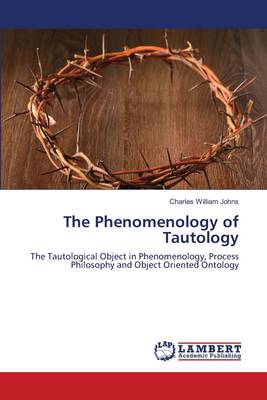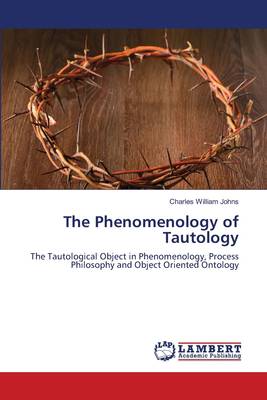
Door een staking bij bpost kan je online bestelling op dit moment iets langer onderweg zijn dan voorzien. Dringend iets nodig? Onze winkels ontvangen jou met open armen!
- Afhalen na 1 uur in een winkel met voorraad
- Gratis thuislevering in België vanaf € 30
- Ruim aanbod met 7 miljoen producten
Door een staking bij bpost kan je online bestelling op dit moment iets langer onderweg zijn dan voorzien. Dringend iets nodig? Onze winkels ontvangen jou met open armen!
- Afhalen na 1 uur in een winkel met voorraad
- Gratis thuislevering in België vanaf € 30
- Ruim aanbod met 7 miljoen producten
Zoeken
Omschrijving
Can philosophy study everyday objects like computers, shoes, sandwiches and cars? Can it save such objects from the abstractions of metaphysics? Can philosophy think of advertising, the population, electricity, buildings and even dreams as objects in their own right, which convey particular and novel qualities when analysed? Johns' book starts from an immanent phenomenological study of objects, arguing that such objects disclose larger systems of anthropological meaning and control whilst nevertheless remaining irreducible to them. Johns moves away from the Husserlian 'essence' of the object and instead embeds objects into a series of 'uses' (or 'equipment' as Heidegger called it). An objects existence within the world presupposes a complicity; a network of 'uses' that go far beyond any human-oriented understanding of the world. This is when the annals of phenomenology meet contemporary strands of realism such as speculative and Object Oriented models. For Johns the objects integrity remains in the unique way it indexes time, space and contingency without being reduced to these factors. Johns' strange Hegelianism touches 'The Real' once more in this unique philosophical work.
Specificaties
Betrokkenen
- Auteur(s):
- Uitgeverij:
Inhoud
- Aantal bladzijden:
- 132
- Taal:
- Engels
Eigenschappen
- Productcode (EAN):
- 9786203200898
- Verschijningsdatum:
- 30/12/2020
- Uitvoering:
- Paperback
- Formaat:
- Trade paperback (VS)
- Afmetingen:
- 152 mm x 229 mm
- Gewicht:
- 204 g

Alleen bij Standaard Boekhandel
+ 153 punten op je klantenkaart van Standaard Boekhandel
Beoordelingen
We publiceren alleen reviews die voldoen aan de voorwaarden voor reviews. Bekijk onze voorwaarden voor reviews.











